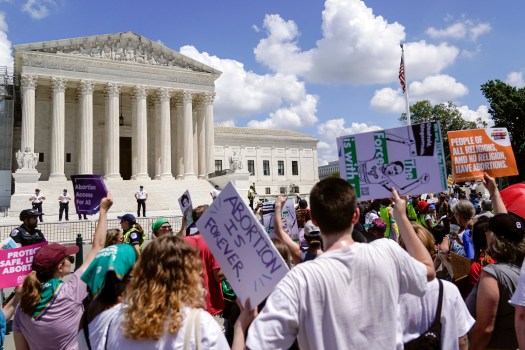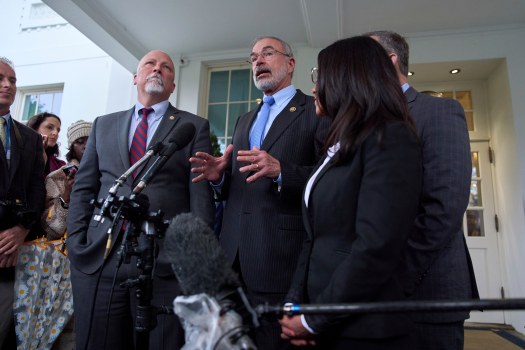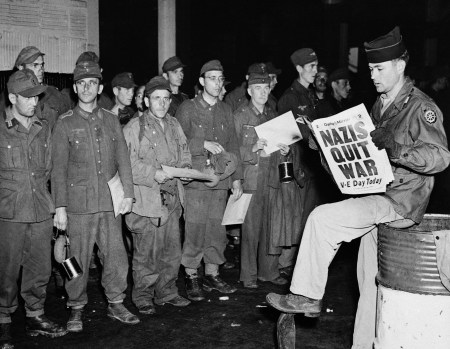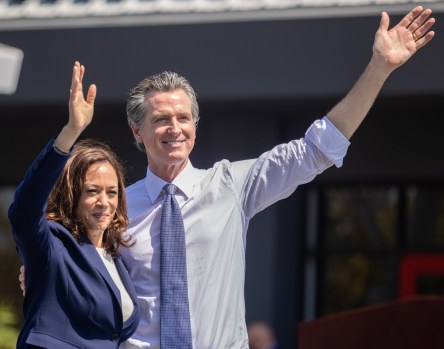Francis Schaeffer vehemently maintained that euthanasia, infanticide, and abortion were obvious manifestations of America’s waning respect for the sanctity of life in his seminal 1979 book and video series Whatever Happened to the Human Race? He maintained that it was the moral duty of evangelicals to buck this alarming trend. The Dobbs v. Jackson Women’s Health Organization ruling, which overturned Roe v. Wade, nearly fifty years later, is a major legal win that fits Schaeffer’s vision, but was it a success?
Legislatively speaking, Dobbs unquestionably achieved a major objective of the pro-life movement: giving states back control over abortion laws and drastically limiting access to abortion in many areas. However, Dobbs has not received widespread backing from the American public in spite of reaching this legal milestone. According to national surveys, between 60% to 70% of Americans are against overturning Roe.
It’s interesting to note that even among evangelical Christians, current surveys show complex perspectives. According to a Pew study conducted last year, over 25% of white evangelicals think abortion ought to be permitted in the majority of situations. The results of Navigator Research’s post-Dobbs survey showed even more complexity: 51% of evangelicals now identify as pro-life, while 44% now identify as pro-choice. These results show that, depending on how the issue is phrased, a sizable minority of evangelicals—between 25% and almost 50%—support abortion rights. It’s obvious that Dobbs hasn’t had a significant impact on public opinion, and some religious communities may have even reacted negatively.
This, in my opinion, exposes a serious contradiction in evangelical doctrine. Evangelicals frequently have faith in women to make important spiritual decisions including accepting Christ, choosing a spouse, deciding how big a family to have, and choose a career.
Evangelicals even support the idea that women can serve on the Supreme Court and make decisions that have a significant impact on millions of people. However, a lot of people are hesitant to entrust women with the very personal choice of whether or not to end a pregnancy.
Interestingly, according to Lifeway Research, 16% of women who had abortions classified as evangelical Christians, compared to 13% according to the Guttmacher Institute. Given the increased transparency around personal experiences in evangelical congregations, I have a suspicion that this number would be higher today.
Hearing firsthand accounts from pro-life evangelical women who have undergone abortions was what really changed the way I believe. These women frequently conveyed profound sadness despite their conservative views and dedication to a biblical pro-life position. Many stated that although they truly wanted a child, they felt ethically obliged to end their pregnancies for strong reasons, usually related to health. I was persuaded by their moving testimonies that individual women should continue to make this deeply personal choice.
Think about the stories of Ann and Beverly, two devout Christians who are married, have three kids, and suddenly find themselves in life-threatening pregnancies.
Ann decides to bring her pregnancy to term after consulting with her pastor, talking to her husband, seeking medical advice, and praying. She sees her choice as a legacy of selfless faithfulness for her children, trusting God with her health and future even if it means dying.
Beverly decides that having a life-saving abortion is the most appropriate course of action after consulting with others and praying with equal fervor. She feels that God has called her to uphold her vows to her spouse and kids and to take care of the health and welfare of her current family.
Although their results are very different, they are all motivated by a sincere Christian belief. The crucial point is not which option is better, but rather whether Scripture gives devout Christians the moral freedom to make difficult choices, such as ending a pregnancy. This agency is confirmed by a pro-choice position grounded in biblical principles.
One’s chosen measurements have a significant impact on whether Dobbs is considered a success. Dobbs unquestionably lowers abortion rates, saving thousands of fetal lives every year, as viewed from a purely pro-life standpoint. On the other hand, it also leads to a surge in unplanned births, recorded instances of impaired maternal healthcare, particularly in medically difficult pregnancies, and higher rates of mother and newborn mortality in states with stringent abortion laws.
In the end, Dobbs emphasizes how difficult it is to strike a balance between respect for life and sympathetic recognition of unique situations. Legislative successes might not be the only way to achieve true success; more knowledge, thoughtful discussion, and kind policies that promote life in all its forms may also be key.
Respecting women’s autonomy to make decisions about pregnancy is where I see improvement. More than half of evangelical women who have had abortions reported frequently attending church, but 52% never brought up their abortion with anybody at church, according to Lifeway’s research, which offers alarming insights into church culture. Just 30% of respondents thought their church was a trustworthy source for correct counsel on pregnancy-related decisions, and only 38% thought it was safe to have an open discussion about pregnancy alternatives there.
These mindsets also applied to pastoral leadership. Of the women polled, only 43 percent thought it was safe to talk to their pastor about abortion. Only 39% of respondents thought that pastors were attentive to the challenges presented by unintended pregnancies, and nearly half thought that their teachings on forgiveness did not appear to cover abortion. Instead of expecting sympathetic and loving reactions from their religious communities, twice as many women expected criticism or judgment.
Women are probably even more hesitant to talk openly about abortion in churches now than they were before Dobbs, particularly if abortion is prohibited or highly restricted in their state. In these situations, whether it’s helping with travel expenses, taking care of their children while they’re away, or traveling out of state for a surgery, women need their spiritual community more than ever. Our religion groups should provide compassionate support, not condemnation, during times of great moral hardship.
Ed Gaskin founded Sunday Celebrations and serves as the Executive Director of Greater Grove Hall Main Streets.












